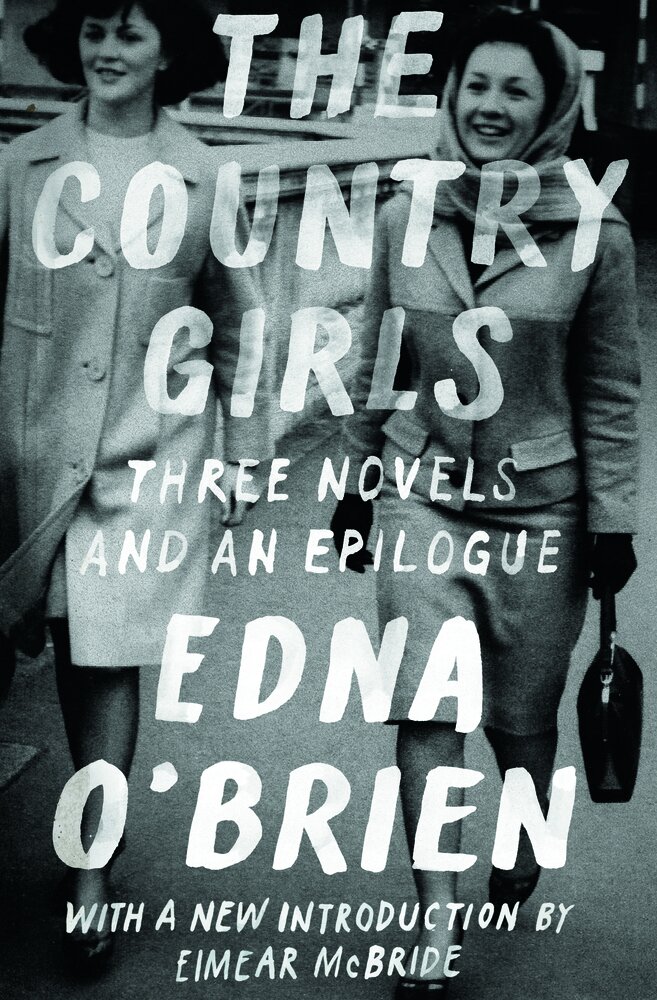I picked up this book in large part because I watched the Ken Burns documentary on Hemingway, and Edna O’Brien was the “talking head” I liked best. I picked the first book I found in the Ottawa Library website, which also seems to be her most famous. Somewhat confusingly, The Country Girls is one of those multi-novel sagas that gets repackaged as a single book, so I wasn’t sure at first if it was truly a collection of several works or merely styled that way—especially given the part about the epilogue, which wouldn’t make sense to publish independently.
In truth, the three books that make up The Country Girls were indeed distinct novels, each published two years apart. The first, also called The Country Girls, introduces us to the eponymous girls: Caithleen “Kate” Brady, a self-conscious and wounded girl who narrates the book and its immediate sequel; and Bridget “Baba” Brennan, her brasher, more worldly friend. Their relationship is fractious, with Baba being outright cruel to Kate at times, but beneath their occasional hostilities runs a deep and unbreakable cord of friendship that binds the three books together. The Country Girls introduces us to Kate’s and (to a lesser extent” Baba’s home lives. showing Kate’s long-suffering mother and abusive alcoholic father. Baba’s family, though more outwardly prosperous—her mother is a glamorous figure and her father a veterinarian, while Kate’s family are struggling farmers—have struggles of their own, and happiness is in short supply. The two girls go to the convent—Kate on the strength of a scholarship, Baba through her parents paying the tuition—where they struggle to adapt to the oppresive atmosphere. Kate maintains an illicit and largely unconsumated relationship wit hthe older Mr. Gentleman, and the book concludes with her being left high and dry when hoping to run off with him.
The Lonely Girl features much less Baba, and is mainly a story of Kate’s relationship with Eugene, a sophisticated, agnostic documentary film-maker. Though fully grown, Kate remains in many ways the girl referenced in the title, as she struggles between the countervaling forces of her father and her would-be husband.
In Girls in Their Married Bliss, the perspective shifts to Baba, who narrates some passages while a third person narrator continues on with Kate. We learn that baba is unhappily married to a financially successful but ignorant and abusive contractor. Her fatalistic view of her own situation and pragmatism contrasts with kate’s doe-eyed optimism, as both women model the worldviews first forged by their own mothers. Much of the book involves a custody battle between Kate and Eugene over their son, Cash. Though still well-written, the book is arguably the weakest of the three, meandering in places and lacking the clear arc of the first two books. The epilogue is once again narrated by Baba, whose now thoroughly jaded view of the world seaps through in a caustic string of asides and invective. It sloshes about it places, but is a powerful conclusion, and serves to bind the three novels—linked but discrete—into a distinct whole.
O’Brien’s writing is crisp and strong. Perhaps it is simply because of where I first heard of her, but Hemingway’s influence seems to hang over much of the first book, fading as she progresses, until a style much her own emerges at the book’s conclusion. it was an interesting exercise to read the books in sequence, watching subtle changes in her cadence. Overall, the books were quite good, and Iwill probably pick up another by her at some point.

